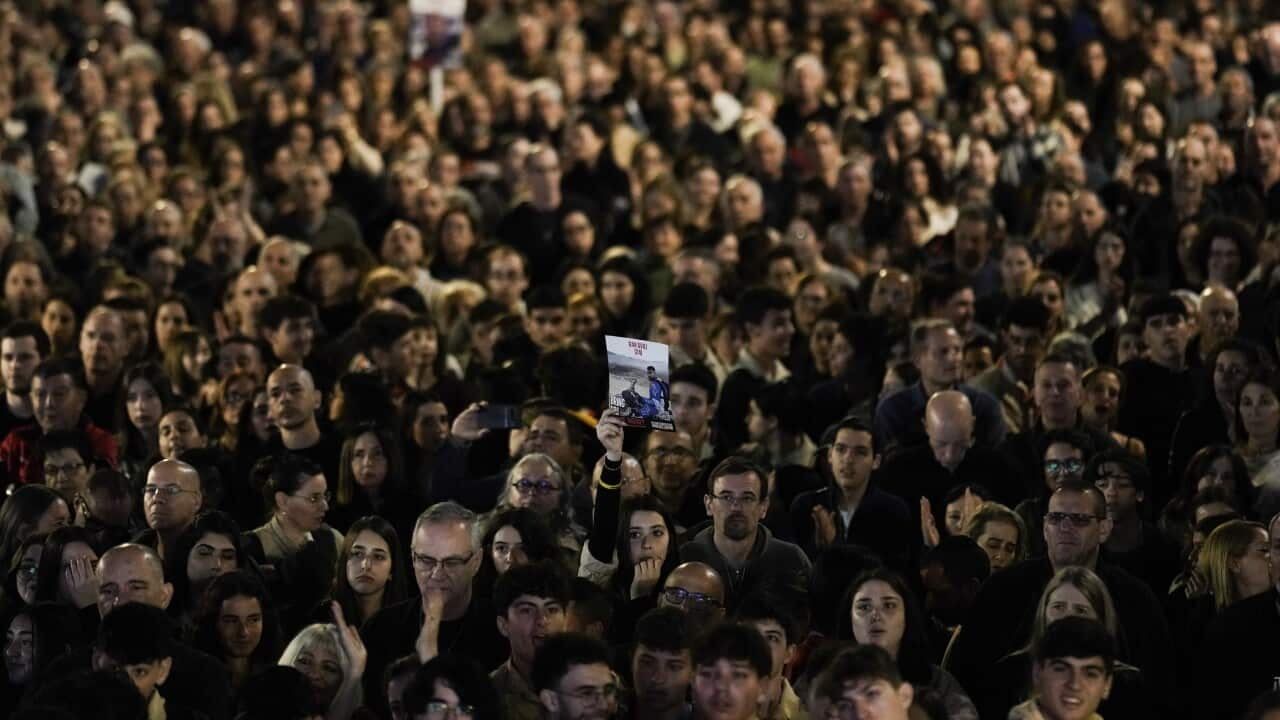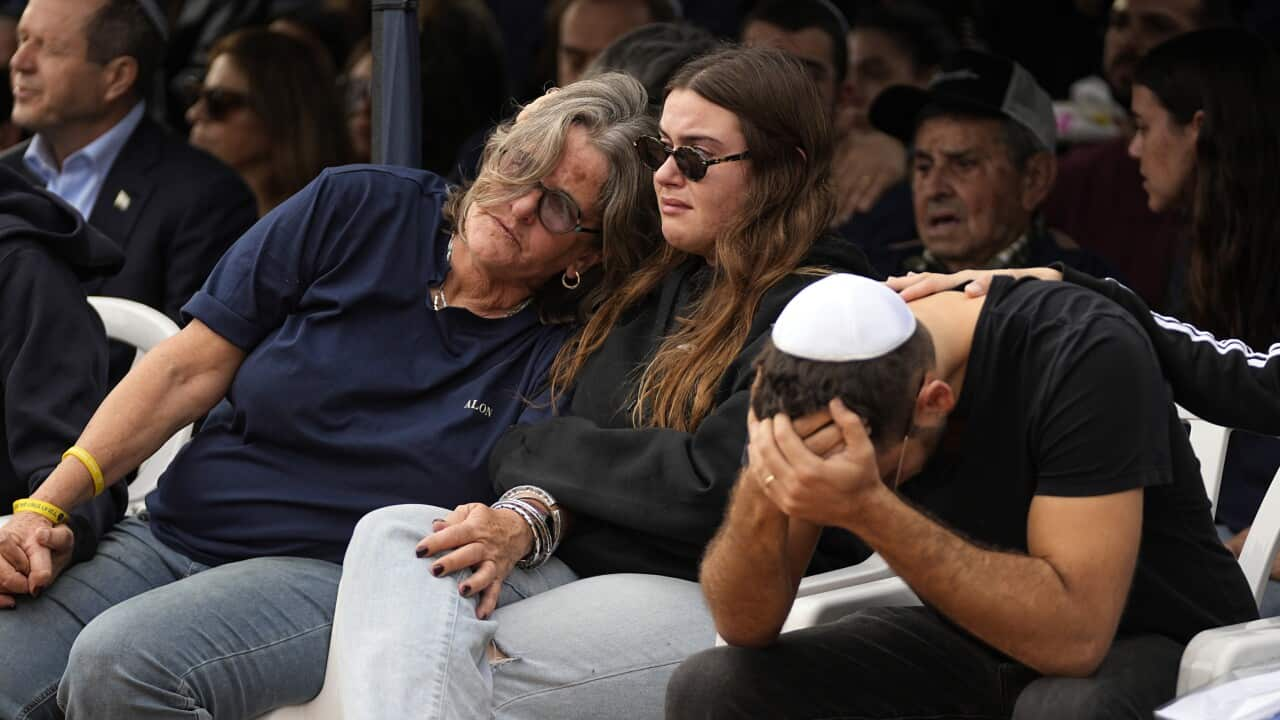Key Points
- The head of the International Committee of the Red Cross has urged Hamas and Israel to reach a deal.
- ICRC president Mirjana Spoljaric described the conflict in Gaza as a "moral failure" of the international community.
- A truce was held for a week at the end of November, but heavy fighting resumed on 1 December.
The head of the International Committee of the Red Cross has deplored the conflict in Gaza as a "moral failure" of the international community and urged Israel and Hamas to reach a new deal to halt the fighting.
"I have been speaking of moral failure because every day this continues is a day more where the international community hasn't proven capable of ending such high levels of suffering and this will have an impact on generations not only in Gaza," ICRC president Mirjana Spoljaric told journalists in Geneva following trips to the Gaza Strip and Israel.
"There's nothing without an agreement by the two sides, so we urge them to keep negotiating..." she said, referring to the release of Israeli hostages taken to Gaza by Hamas gunmen during their attack in southern Israel on 7 October.
"The releases in themselves are highly complex, highly sensitive missions."
A truce mediated by Qatar and Egypt held for a week at the end of November and brought about the release of 110 hostages in Gaza in exchange for 240 Palestinian women and teenagers from Israeli jails.
Heavy fighting resumed on 1 December and some of the remaining hostages have been declared dead in absentia by Israeli authorities.
Although the ICRC facilitated the release of hostages during the truce, the group has been criticised by some Israelis for not doing more to have the hostages freed.
Some social media users have equated the ICRC to a taxi service to drive hostages out of Gaza.
"You don't just go there and take the hostages and bring them out," Spoljaric said, saying that any analogy with an Uber or taxi service was "unacceptable and outrageous".
"Our colleagues risked their lives and their safety and security during these operations and the hostages are highly exposed while these things are ongoing," she added.
Israeli Prime Minister Benjamin Netanyahu appeared to confirm last week that new negotiations were underway to recover hostages still held by Hamas, after a source said Israel's intelligence chief met the prime minister of Qatar.
Spoljaric said the ICRC would stand ready to assist again once the parties arrive at an agreement.
Israeli President Isaac Herzog signalled readiness on the part of the country on Tuesday to enter another foreign-mediated "humanitarian pause" in fighting to recover more hostages held by Hamas and enable more aid to reach Gaza.
Basem Naem, a senior Hamas official based outside Gaza, ruled out further negotiations on exchanging prisoners while the war continued but said Hamas was open to any initiative to end it and bring relief to Gaza Palestinians.
A source briefed on diplomatic efforts told Reuters on Tuesday that Qatar's prime minister and the heads of the US and Israeli intelligence services had held "positive" talks in Poland to explore ways of reviving negotiations but a deal was not expected imminently.

A person holds a poster of Vivian Silver, top centre, as medical staff and health professionals attend a demonstration in front of the International Committee of the Red Cross (ICRC) in London on 9 November, calling for an immediate intervention in the case of the hostages kidnapped from Israel on 7 October. Source: AAP / Kin Cheung
Residents said they had to dig in the rubble with bare hands.
"This is a barbarian act," said Mohammed Zurub.
Among the dead was Palestinian journalist Adel Zurub and several members of his family, medics said.
In the north, another strike killed 13 people and wounded about 75 in the Jabalia refugee camp, the health ministry said.
Israel says it warns of strikes in advance so civilians can escape, and it accuses Hamas of hiding in residential areas.
In the ground war, where Israel has lost 132 soldiers, tanks advanced further into the southern city of Khan Younis and shelled a market area but met heavy resistance, residents said.
Thousands of Hamas fighters, based in tunnel networks, are waging guerrilla-style war against Israeli forces.
"The IDF (Israel Defence Forces) is continuing to operate against Hamas terrorist infrastructure and operatives in the Gaza Strip," the military said in a statement.
Despite 11 weeks of attacks against it, Hamas said it had still been able on Tuesday to fire a salvo of rockets towards Israel's commercial capital Tel Aviv, where sirens sounded.
Israel has bombarded Gaza since Hamas' 7 October attack in which more than 1,200 people, including an estimated 30 children, were killed and over 200 hostages taken, according to the Israeli government.
More than 19,000 people have been killed in Gaza since 7 October according to the health ministry in Hamas-controlled Gaza.
The war between Hamas and Israel is the latest escalation in a long-standing conflict.
Hamas is a Palestinian political and military group, which has governed the Gaza Strip since the most recent elections in 2006.
Hamas’s stated aim is to establish a Palestinian state and stop the Israeli occupation of Gaza and the West Bank, illegal under international law.
Hamas in its entirety is listed as a terrorist organisation by the European Union and seven other countries, including Australia. But the UN Assembly rejected classifying Hamas as a terrorist group in a 2018 vote.
In 2021 the International Criminal Court opened an investigation into alleged Israeli war crimes in the Palestinian territories dating back to 2014, including the recent attacks of both Israel and Hamas.












